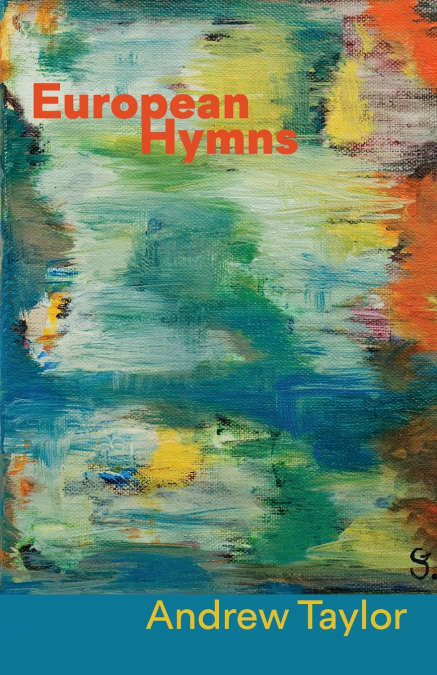
 Librería Desdémona
Librería Desdémona
 Librería Samer Atenea
Librería Samer Atenea
 Librería Aciertas (Toledo)
Librería Aciertas (Toledo)
 Kálamo Books
Kálamo Books
 Librería Perelló (Valencia)
Librería Perelló (Valencia)
 Librería Elías (Asturias)
Librería Elías (Asturias)
 Donde los libros
Donde los libros
 Librería Kolima (Madrid)
Librería Kolima (Madrid)
 Librería Proteo (Málaga)
Librería Proteo (Málaga)
European Hymns is Andrew Taylor’s fourth collection published by Shearsman Books. Over four sections, the book traces the calendar year throughout the seasons. Beginning with the optimism that spring brings, the book offers up the arrival of the nightingales in rural France (an ongoing interest of Taylor’s) then navigates through summer trips to cities, takes in periods of reflection amongst the closing down of a summer house, the sudden shift to Autumn and the inevitable descent into winter. This is Taylor’s most wide-ranging collection to-date, in turns, observatory and detailed. The poems also deal with the changes in the natural world, while others offer snapshots of moments in time, with Taylor often re-employing his minimalist practice to useful effect. From reviews of Not There-Here (2021):’It’s exhilarating, refreshing writing.’ -Rupert Loydell, Stride Magazine ’In a sense these poems are cubist, presenting multiple perspectives of a scene or an event without privileging any single one. The poems deny a single, omniscient self. It’s a natural human tendency to impose a narrative on experience, and these poems seem to be trying to strip that away and present experience as it is.’ -Alan Baker, Litter Magazine From reviews of March (2017)’A blast of refreshing air in the gloom of Fenland Winter’ -John James’'Honesty Box' is the most recent example of how Taylor’s words can present a more lasting reflection of Time’s inexorable progress. It is an important poem and one that deserves some serious consideration as the latest example of a fine genre in which a human individual contemplates both movement and stasis’ -Ian Brinton, Tears in the Fence From reviews of Radio Mast Horizon (2013)’Andrew Taylor’s work is an expression of everyday life in all its vivid details: colour, sound, speed and technology weave through the poems. Taylor constantly surprises us with his shifts and juxtapositions, all of the world is in these poems.’ -Jeremy Hilton, Tears in the Fence’Taylor achieves something of happiness for both the writer and the reader.’ -Anthony Caleshu, New Walk